|
Dear Colleagues,
I am pleased to include another issue of RFS Briefings with some timely and encouraging updates on women in science.
Please continue to share important news and opportunities with us so that we may share it with you and others who are committed to supporting the careers of exceptional women in science.
Stay safe and sound,
Karla Shepard Rubinger
Executive Director
Rosalind Franklin Society
www.rosalindfranklinsociety.org

RFS board member Elaine Fuchs awarded Benjamin Franklin Medal in Life Science.
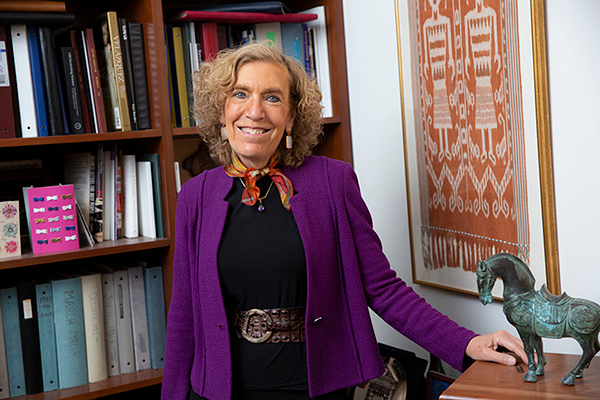
Rockefeller University biologist Elaine Fuchs has been awarded a 2023 Benjamin Franklin Medal in Life Science, one of the oldest and most most venerable honors in the United States. Head of the Robin Chemers Neustein Laboratory of Mammalian Cell Biology and Development, Fuchs uses mammalian skin as a model to illuminate the nature and behavior of tissue stem cells. Read more.
CRISPR pioneer Jennifer Doudna looks to tech's past and future in new review.
While it remains to be seen how delivery, manufacturing and pricing will play out, Jennifer Doudna, Ph.D., and co-author Joy Wang predict that the next 10 years will see CRISPR technology become faster and cheaper to use for applications like genome sequencing. Read more.
The next generation of global health innovators: Michelson Prize winners announced.
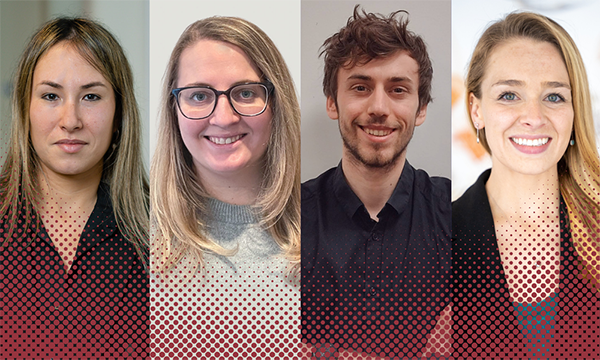
Meet the 2022 Michelson Prizes, Next Generation Grants recipients: Dr. Noam Auslander, Dr. Jenna Guthmiller, Mr. Romain Guyon, and Dr. Brittany Hartwell. The $150,000 Michelson Prizes are awarded annually to support early-career investigators working to advance human immunology, vaccine discovery, and immunotherapy research for major global diseases. Read more.
Women scientists at famed oceanography institute have half the lab space of men.
Women constitute 26% of the scientists at the Scripps Institution of Oceanography (SIO) at the University of California, San Diego (UCSD), but only hold 17% of the space, according to a report. The authors said the differences could not be “explained away” by funding, years at SIO, discipline, or research group size. “Our analysis points to the existence of widespread, institution-wide cultural barriers to gender equity within Scripps,” they concluded. Unfortunately this sounds much like the fastidious research 30 years ago by founding RFS Board Member Nancy Hopkins at MIT. Read more.
Dr. Mona Fouad: “It’s all about the people”
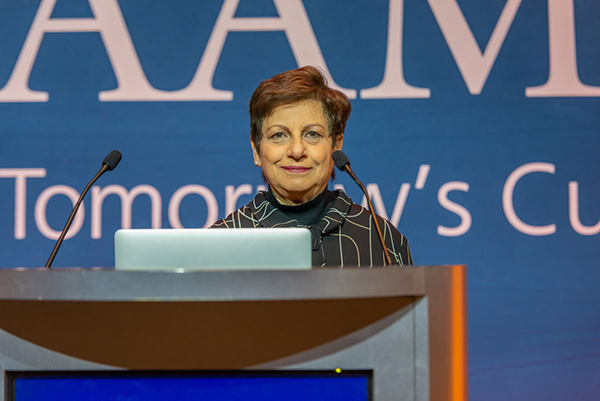
Congratulations to Dr. Mona Fouad, who was presented with the 2022 Vilcek-Gold Award for Humanism in Healthcare at the Association of American Medical Colleges (AAMC) meeting in Nashville, Tennessee, on November 12, 2022. As the founder and director of the Minority Health and Health Equity Research Center at the University of Alabama, Birmingham, Fouad received the award for her career commitment to equity in healthcare. Read more.
A call to create funding equity for researcher-mums.
Mothers in academic research and those who support them say in a report that the funding system can and should remedy gender bias in the sciences. Mothers in Science started a global movement to call on our leaders for immediate action to promote inclusion of caregivers and ensure an equitable distribution of research funding resources. They urge research funders worldwide to begin taking meaningful action and use this action plan as guidance to improve their practices and to cultivate a culture of fairness and inclusion more broadly in the STEMM sector. Read more.
Leaving academia and becoming an online entrepreneur.
Anna Pineda runs an education business that helps scientists to be more productive and to improve their writing skills. She left academia after teaching a yoga and writing course unleashed her entrepreneurial passion. Read more.
Female and black professionals more often viewed as ‘lucky’ than competent when they succeed.
“How we view the success of others from different sociodemographic groups is a crucial leverage point for inclusion and diversity, particularly as women and under-represented ethnic groups continue to be systematically disadvantaged in the workforce. Ignoring this bias has direct implications on individuals and can have knock on effects for future success,” said Odessa S. Hamilton, Behavioural Scientist at LSE’s The Inclusion Initiative and lead author. Read more.
Alondra Nelson to leave White House science office.
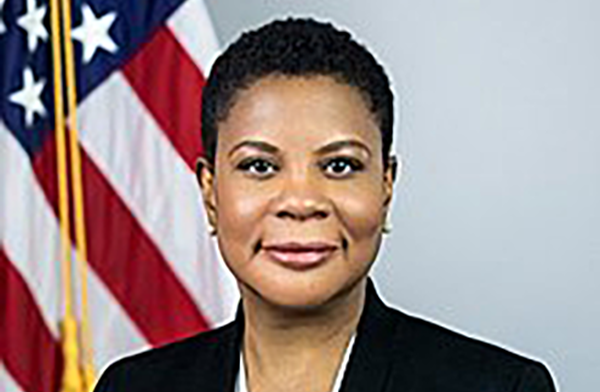
A 64-year-old sociologist, Nelson has a lengthy resume of “firsts” as she has climbed the ranks of academia and government, including being the first Black person, and first woman, to lead the White House Office of Science and Technology Policy.She will be returning to her previous work at the prestigious Institute for Advanced Studies in Princeton. Past home of Albert Einstein. Read more.(Image: Wikipedia)
The Inspiring Women in Science Awards 2023 are open for entries between the 30th January and 8th May 2023.
The Inspiring Women in Science awards celebrate and support the achievements of women in science, and all those who work to encourage girls and young women to engage with STEM subjects and stay in STEM careers around the world. Read more.
When men dominate startups, women take a pass, according to new research.
Women are caught in a “vicious cycle” of underrepresentation in startups, according to new research. If the earliest hiring decisions at a new company exclude women, which they often do, then the organization will have difficulty attracting female talent in the future. As a result, entrepreneurial companies that start with gender disparities have a tough time correcting the imbalance. Read more.
GEN Biotechnology is celebrating its first year of publishing.
We’d like to encourage you to join this dynamic community by submitting your original research. Launched in 2022, GEN Biotechnology is the peer-reviewed sister journal to Genetic Engineering & Biotechnology News (GEN). Led by chief editor Hana El-Samad (Altos Labs/UCSF) and a truly diverse editorial board, GEN Biotechnology aims to publish outstanding research across the full breadth of biotechnology. Read more.
Paying it forward.
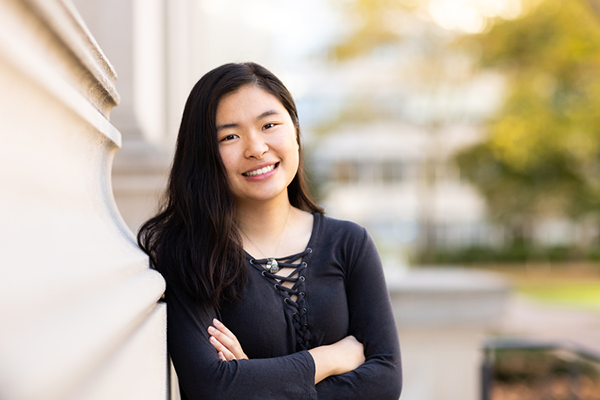
Biology and computer science major Sherry Nyeo conducts research on RNA and spends her free time helping other undergraduates take advantage of MIT’s many diverse course and program offerings. Read more. (Photo: Steph Stevens)
Nominate a Researcher in Honor of World Cancer Day.
In honor of World Cancer Day, please take a few minutes to nominate a researcher you believe deserves the 2023 Szent-Györgyi Prize for Progress in Cancer Research. The deadline to submit nominations is midnight on February 28, 2023. Read more.
Marianna Limas, Social Media Manager
Nilda Rivera, Partnership and Events Manager |
|
|
Dear Colleagues,
I am pleased to include another issue of RFS Briefings with some timely and encouraging updates on women in science.
Please continue to share important news and opportunities with us so that we may share it with you and others who are committed to supporting the careers of exceptional women in science.
Stay safe and sound,
Karla Shepard Rubinger
Executive Director
Rosalind Franklin Society
www.rosalindfranklinsociety.org

Columbia names Nemat Shafik as president, the first woman to lead the university.
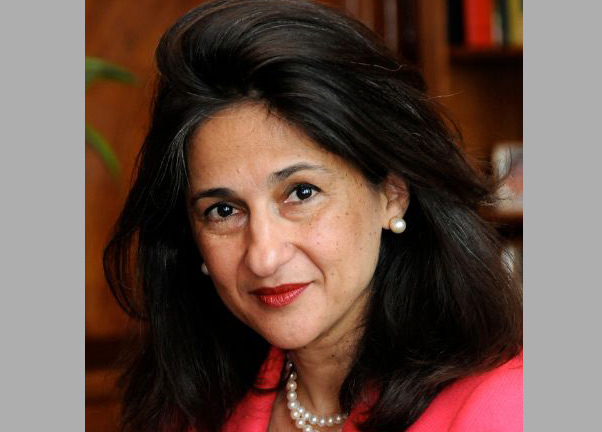
The selection of Dr. Shafik, known as Minouche, marks the first time a woman has been named to lead the prestigious New York institution. In a letter to the Columbia community, the university’s board of trustees said it had found a “perfect candidate” in Dr. Shafik, a “brilliant and able global leader, a community builder and a pre-eminent economist who understands the academy and the world beyond it.” Read more. Image: Wikipedia.
Leadership in science: how female researchers are breaking up the boys’ club.
In this podcast episode, Charu Kaushic, a research group leader at McMaster University in Hamilton, Canada, says that leadership is more than just exercising power, competence and confidence, it is also about wanting to do good. Read more.
MIT scholar to lead the Advanced Research Projects Agency at the U.S. Department of Energy.
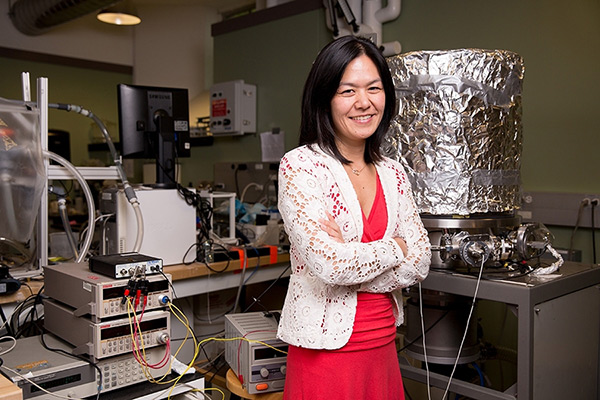
Evelyn Wang, the Ford Professor of Engineering at MIT, has been confirmed by the US Senate as the director of the Advanced Research Projects Agency-Energy at the U.S. Department of Energy. As director of ARPA-E, Dr. Wang will advance the agency’s mission to fund and support early-stage energy research that has the potential to impact energy generation, storage, and use. Read more. Photo: Bryce Vickmark (MIT News)
Leona Zacharias helped solve a blindness epidemic among premature babies. She received little credit.
In the first Lost Women of Science Shorts podcast, host Katie Hafner dives into the life and work of Leona Zacharias—a brilliant researcher who, before reporting this story, Hafner only knew as her grandmother Read more.
Men predicted to outnumber women in physics until the year 2158.
An analysis of nearly 5.5 million scientific papers has found that, on current trends, the proportion of women authoring research won't reach parity with men in some fields for over 100 years. Cassidy Sugimoto at the Georgia Institute of Technology in Atlanta and Vincent Larivière at the University of Montreal in Canada analyzed nearly 5.5 million scientific papers published between 2008 and 2020. Read more.
The American Association of Immunologists announces the 2023 recipients of AAI Awards for outstanding research and career achievements.
The 2023 AAI Award winners will be recognized at IMMUNOLOGY2023™, May 11–15, in Washington, DC. Read more.
Women in science: Cancer research pioneers – part 1
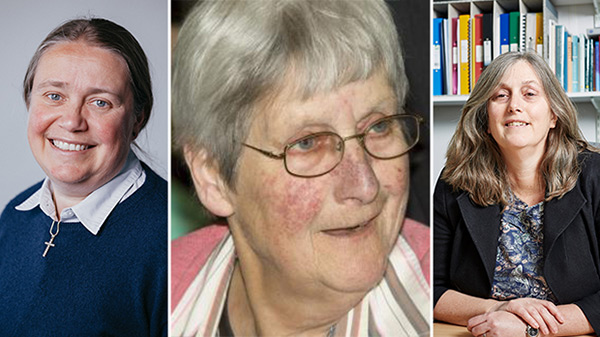
In this article, Cancer Research UK is highlighting three women who have helped bring forward innovative new cancer treatments through their involvement in clinical trials. Professor Ruth Plummer is an oncologist who specializes in treating patients on experimental cancer trials and people with melanoma, Dr. Eve Wiltshaw was a pioneer of medical oncology, and Professor Judith Bliss leads the Clinical Trials and Statistics Unit at The Institute of Cancer Research (ICR-CTSU). Read more.
A top U.S. science oversight board is about to get much more diverse.
On 13 January, Biden announced the pending appointment of seven women and one man for the eight vacancies on the National Science Board (NSB). The new class, which includes five scientists of color, will give the 24-member board a roster that features 10 women, three Black scientists, and three Latino scientists. “The president’s appointments will make this the most diverse National Science Board in history,” says Arati Prabhakar, director of the White House Office of Science and Technology Policy and assistant to the president for science and technology. Read more.
Call for Nominations: The 2023 Vilcek-Gold Award for Humanism in Healthcare.
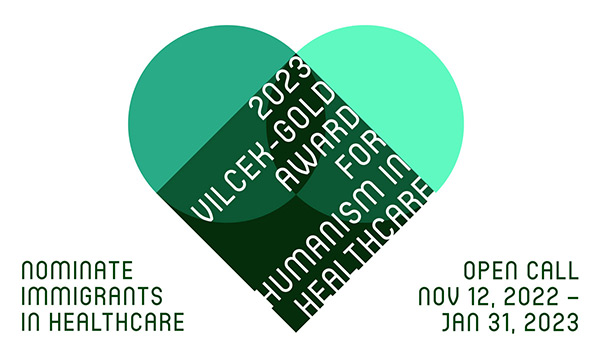
The Vilcek Foundation and The Arnold P. Gold Foundation have announced an open call for nominations for the 2023 Vilcek-Gold Award for Humanism in Healthcare. Nominations will be accepted through January 31, 2023, at 5 p.m. Eastern Standard Time. Read more.
Four women, all marine scientists, plan to row 3,000 miles across Atlantic Ocean.
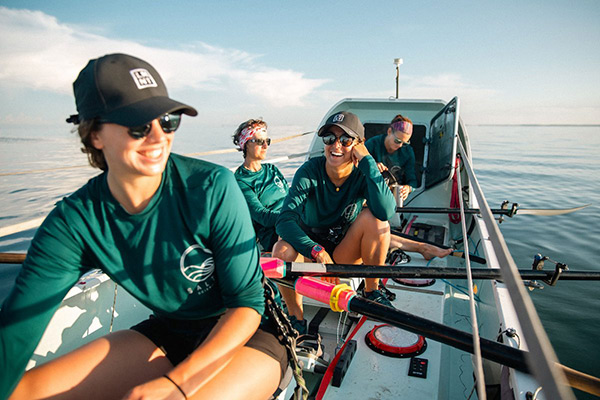
Three generations of USF academics are on a mission "for the oceans". They'll be competing in the 2023 Atlantic Challenge race later this year and hope to raise awareness and money for ocean conservation. "The oceans are facing a lot of threats right now, from climate change to overfishing, and we need people who can solve those problems," says Noelle Helder, one of the Salty Scientists. "We want to help train the next generation." Read more. Image: https://saltyscience.org/
Early Career Fellowships support 25 women scientists in the developing world.
The Organization for Women in Science for the Developing World (OWSD) announced that 25 women have been granted the 2022 Early Career Fellowships. These scientists will receive up to $50,000 to lead research projects and establish research groups at their home institutions to maintain an international standard of research and attract scholars from all over the world to collaborate. Read more.
Marianna Limas, Social Media Manager
Nilda Rivera, Partnership and Events Manager |
|
Dear Colleagues,
I am pleased to include the first issue of RFS Briefings for 2023 with some timely and encouraging updates on women in science.
Please continue to share important news and opportunities with us so that we may share it with you and others who are committed to supporting the careers of exceptional women in science.
Wishing you a happy & healthy New Year,

Karla Shepard Rubinger
Executive Director
rosalind Franklin Society
www.rosalindfranklinsociety.org

White House convenes summit on STEMM equity and excellence.
The White House convened a summit on science, technology, engineering, mathematics, and medicine (STEMM) Equity and Excellence to signal the importance of advancing diversity, equity, and inclusion efforts to achieve scientific excellence. “An equitable science isn’t a luxury, but a necessity if we want to live in a country that is just and that can compete globally in the 21st century,” said Sam Gill, president and CEO of the DDCF. Read more.
A bit of chemistry, a bit of rock ’n’ roll. Nobel laureate Carolyn Bertozzi demonstrated talent for science, creativity even as undergrad.
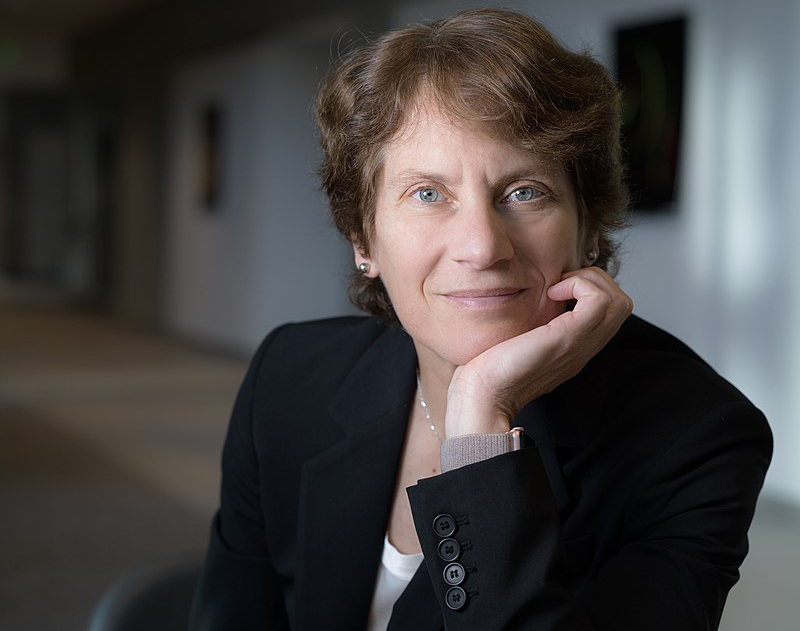
Carolyn Bertozzi’s lab invented bioorthogonal chemistry, which allows chemists to bring molecules together safely in a biological setting. This breakthrough enables chemists to develop new medicines, target medicines toward certain tissues, and see biological molecules in living organisms. Image: Wikipedia. Read more.
Harvard names Claudine Gay as the first Black president of university.
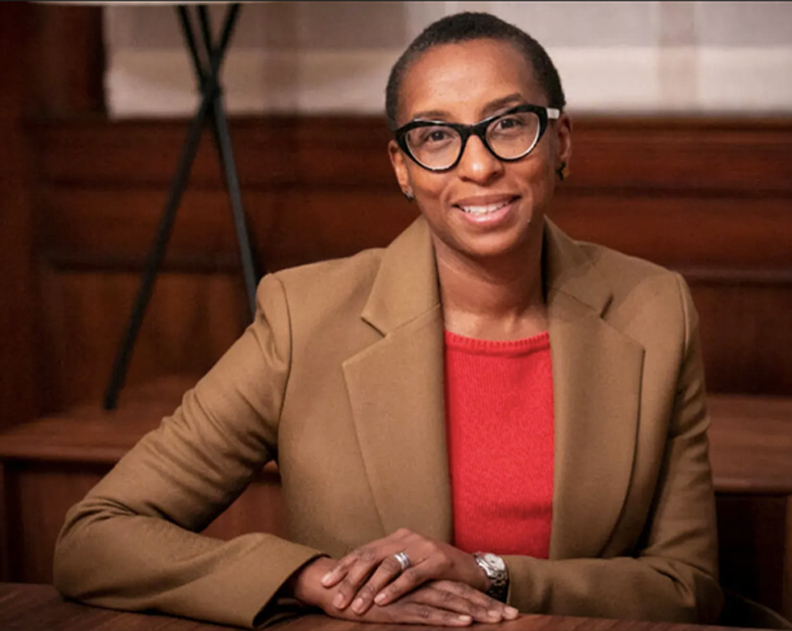
Harvard University recently announced that Claudine Gay will become its 30th president, making her the first Black person and the second woman to lead the Ivy League school. Image by Stephanie Mitchell/Harvard Staff Photographer Read more.
Confronting racism in Black maternal health care in the United States.
In this piece, Maternal-health researcher and obstetrician Kecia Gaither outlines the research needed to save more Black mothers’ lives. Gaither, who is director of maternal fetal medicine at NYC Health + Hospitals/Lincoln in the Bronx, New York, explains how better screening during pregnancy and enhanced anti-bias training for physicians could help turn the tide on maternal death rates. Read more.
Ten simple rules for empowering women in STEM.
According to the progress on the sustainable development goals (SDGs), with a gender snapshot worldwide for 2021, women hold just 28% of jobs in science, technology, engineering, and mathematics (STEM). This article poses ten simple rules on how society could change and prevent gender differences to empower women in STEM. Read more.
“The More Inclusion We Have in Science, the Better Outcomes We’ll Get.”
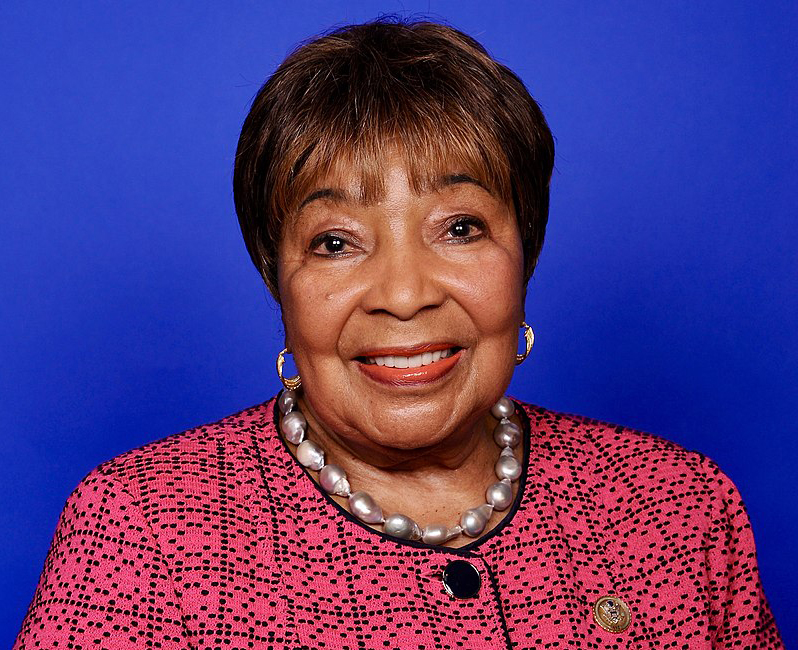
Congresswoman Eddie Bernice Johnson spent five decades in public service, during which she ushered through landmark science and technology legislation and helped to advance opportunities for all Americans. She was also the first woman and the first Black legislator on the House Science Committee. Johnson recently sat down with Issues editor Molly Galvin to discuss the 15 minutes that determined her career in politics, how the semiconductor chip transformed Dallas, and her hopes for the future of the scientific enterprise. Read more. Image: Wikipedia.
Asian researchers face disparity with key U.S. science funding source.
White researchers fared best in winning grants from the National Science Foundation, a study says. Asians encounter the highest rate of rejections, challenging an academic stereotype. “There’s this model minority myth that is a stereotype that suggests that Asians don’t experience academic challenges,” said Christine Yifeng Chen, a geoscientist at Lawrence Livermore National Laboratory in California and the lead author of the eLife paper. “And that’s not true.” Read more.
Funding opportunity: Science, Technology, Engineering and Mathematics Education Individual Postdoctoral Research Fellowships (STEM Ed IPRF).
The Program is designed to support postdoctoral fellows engaged in experiences that will advance their career goals by developing their expertise, skills, and competencies to conduct fundamental STEM education research. Principal Investigators who are women, veterans, persons with disabilities, and from groups underrepresented in STEM, or who have attended community colleges and minority-serving institutions are especially encouraged to apply. Read more.
Climate Enforcers Need Hard Evidence. Friederike Otto Has It.
When an extreme weather event strikes, Friederike Otto and her small team of climate scientists—most of them working in their spare time—are the people the world looks toward to tell them whether climate change has made the weather more severe or more likely to be. “I think it’s important to get a more realistic picture of what climate change means,” says Otto, a senior lecturer in climate science at the Grantham Institute for Climate Change and the cofounder of the World Weather Attribution initiative. Read more.
Barcelona City Council and BIST join forces to promote women’s leadership in science.
As part of this agreement, the Barcelona City Council has awarded a direct grant of an exceptional nature to the BIST foundation for the development of the ‘Women leaders in science and technology’ project, which includes a series of activities including a mentoring programme for young women researchers and scientific education projects for students, among others. Read more.
Marianna Limas, Social Media Manager
Nilda Rivera, Partnership and Events Manager |
|
Dear Colleagues,
I am pleased to include another issue of RFS Briefings with some timely and encouraging updates on women in science.
In case you missed it, you will be able to access the “Center Stage: Science and Leadership from Bench to Boardroom” program on demand. It was terrific!
Please continue to share important news and opportunities with us so that we may share it with you and others who are committed to supporting the careers of exceptional women in science.
Stay safe and sound,

Karla Shepard Rubinger
Executive Director
rosalind Franklin Society
www.rosalindfranklinsociety.org

Chemist Carolyn Bertozzi on biology’s dark matter.
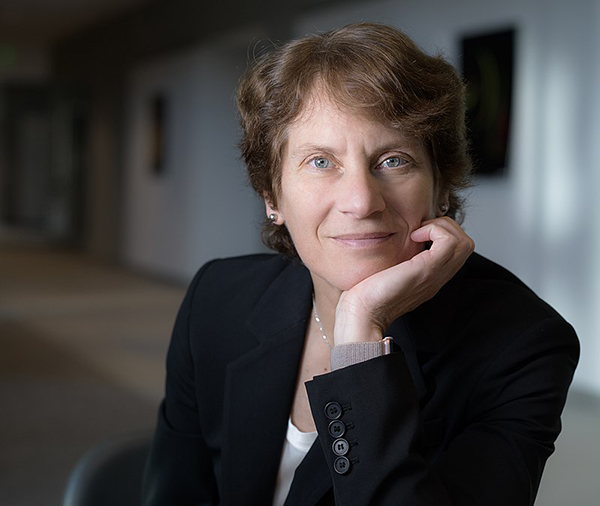
In the latest episode of On With Kara Swisher, Kara talks to Stanford chemist Carolyn Bertozzi, who just won the 2022 Nobel Prize in Chemistry for inventing the promising new field of bioorthogonal chemistry, which consists of chemical reactions that scientists can use to study molecules in a living biological environment without interfering with the natural processes of that environment. Read more. Image: Carolyn Bertozzi by Christopher Michel in 2022.
CRISPR’s second decade: Jennifer Doudna looks forward and back.
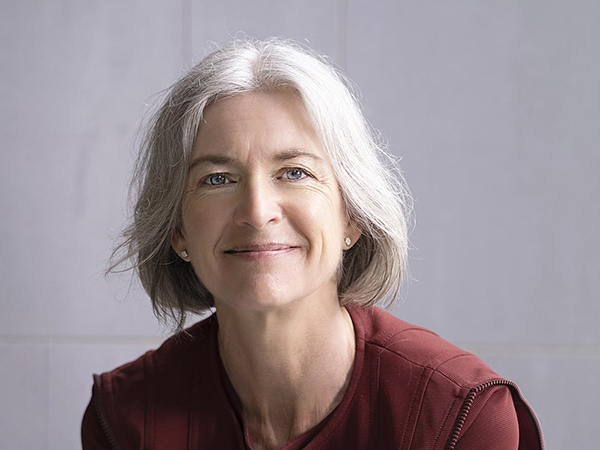
In a candid conversation with GEN senior science writer Julianna LeMieux during “The State of Biotech” forum, Doudna discussed a wide range of topics—what excites her most about CRISPR, where she sees genome editing making an impact on society, what it is like to win the Nobel, and much more. Read more. Image: Jennifer Doudna in 2021 by Christopher Michel.
‘Exhausting’ and ‘energizing’: First leader of high-risk medical research agency discusses startup.
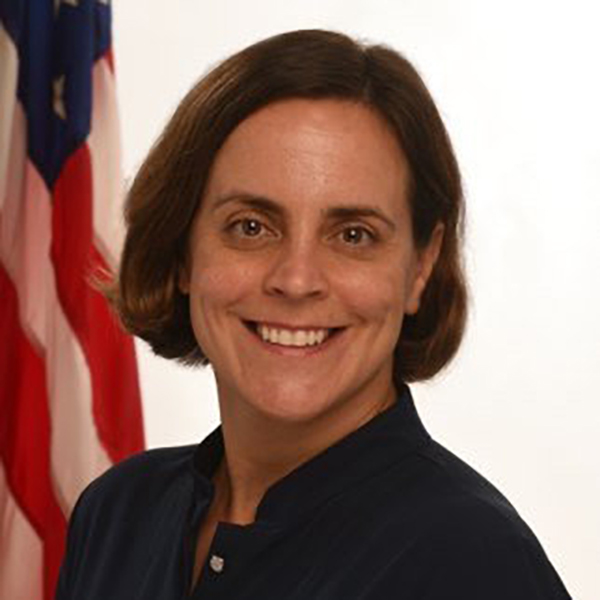
Renee Wegrzyn is the first leader of the Advanced Research Projects Agency for Health, which aims to fund high-risk, high-reward biomedical research. She discussed her plans for the new agency with ScienceInsider. Dr Wegrzyn was a speaker at our Year-end Conference Read more. President Biden’s new health agency with a sweeping mandate to cure some of the system’s biggest problems has one big message: Please apply. (Image: Wikipedia)
The biologist who talks with cells.
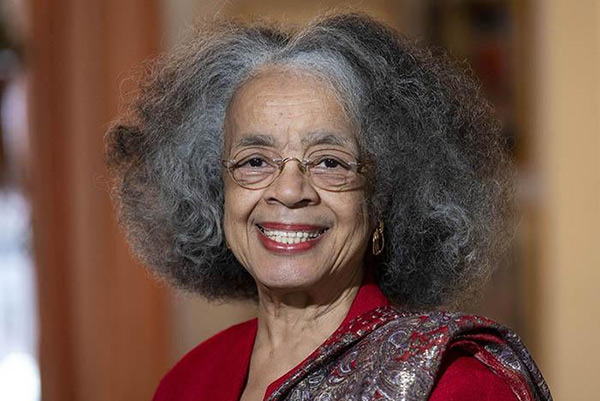 Sandra Murray. Photo by University of Pittsburgh. Sandra Murray. Photo by University of Pittsburgh.
This year, Sandra Murray became the first person of color elected as president of the American Society for Cell Biology. She talks with host Aaron Scott about the beautiful language of cells, how she made her way as a Black woman in STEM, and what gives her hope in her field today. Read more.
Diversity and inclusion is a must to make innovation work for all.
“There is no automatic relationship between diversity and innovation. Companies must develop a culture that fosters a creative and constructive dynamic between groups. This involves challenging established practices,” says Marte C. W. Solheim, head of the Stavanger Centre for Innovation Research, University of Stavanger Business School, Norway. Read more.
The importance of mentoring networks for female scientists.
As a professor at the University of Edinburgh, UK, Polly Arnold saw a real need for senior female scientists, who are often even more isolated than their more junior colleagues, to support and mentor each other. So in 2017 she decided to set up a light-touch network called SciSisters. Read more.
Apply for the 2023 Undergraduate Summer Internship Program.
The Society of University Surgeons is offering an amazing internship opportunity. Student interns will be paired with SUS member mentors to participate in medical research. Read more.
Dr. Chelsea Hu’s research is the first step in figuring out how scientists can have greater control over engineered cells.
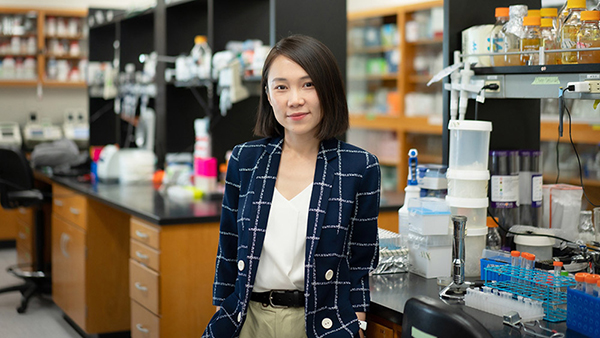
Dr. Chelsea Hu, an assistant professor in the Artie McFerrin Department of Chemical Engineering at Texas A&M University and a member of the Accountability, Climate, Equity, and Scholarship (ACES) Faculty Fellows Program, is using synthetic biology to help scientists control genetically engineered cells. Her study is the first to use modeling and a physical experiment to show the effectiveness of layered feedback mechanisms. Read more.
Marianna Limas, Social Media Manager
Nilda Rivera, Partnership and Events Manager |
|
Dear Colleagues,
I am pleased to include another issue of RFS Briefings with some timely and encouraging updates on women in science.
Equity and representation in science matter more than ever, and the Rosalind Franklin Society continues its mission to recognize, foster, and advance the critical contributions of women and underrepresented minorities in science. Our annual year-end conference highlights the innovators and changemakers with unique experiences and leadership.
Join us for this indispensable, two-day complimentary virtual summit (November 30 and December 1) showcasing dynamic leaders. The program includes an impressive line-up of prestigious award winners in science, as well as a panel to highlight the unique path of scientists navigating the often-tumultuous waters of PhD to CEO.
You will also want to hear first-hand accounts from major new appointments in the federal government and tune in to the presentation that shows a fascinating look back at the Lost Women of Science.
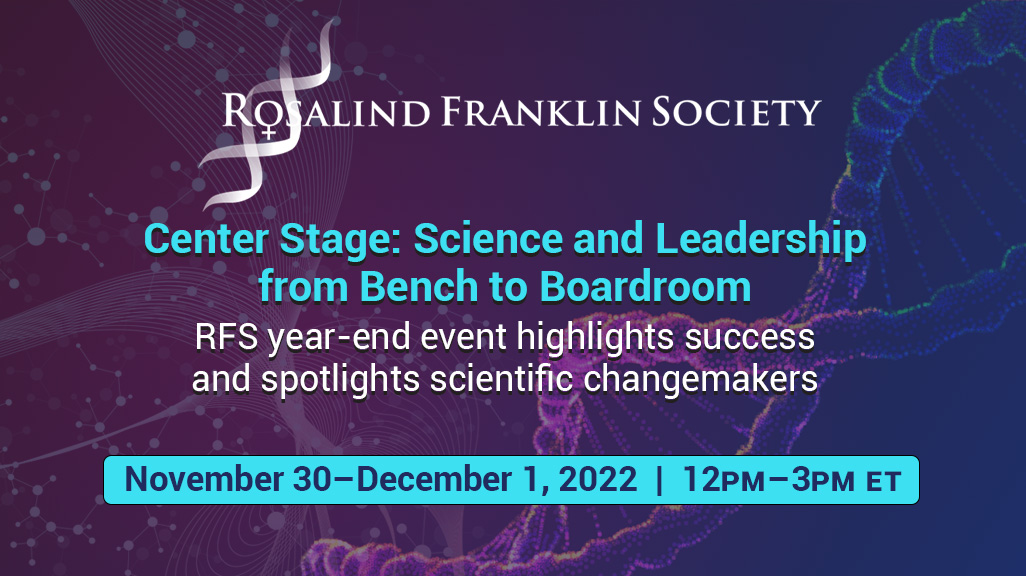
We know you will want to hear these presentations from prestigious scholars, authors, award winners, government leaders from the National Cancer Institute (NCI), Advanced Research Projects Agency for Health (ARPA-H), the Food and Drug Administration, and one scientist's very personal story of insight and recovery from a massive stroke that profoundly shaped her life and career.
Join us to continue the celebration of Dr. Franklin's life, work, and symbolic power, by recognizing outstanding women in science, cultivating more significant opportunities, and inspiring new generations of women. Register now.
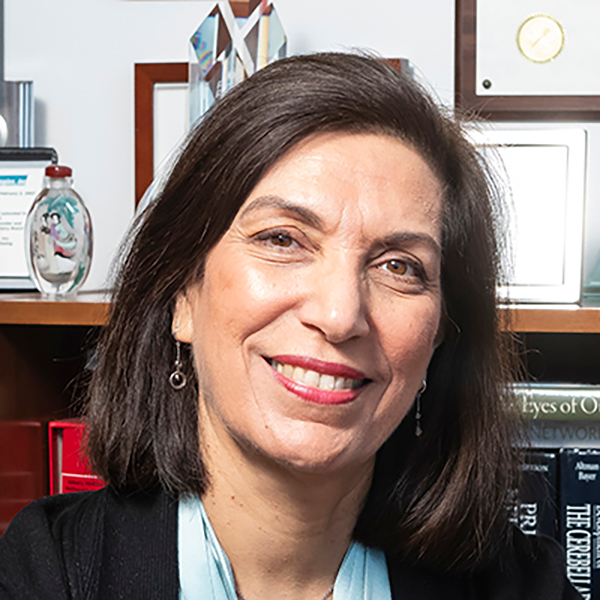 Huda Y. Zoghbi, winner of the prestigious 2022 Kavli Prize in Neuroscience, will be speaking at our event. Dr. Zoghbi is a professor of pediatrics, molecular and human genetics, neuroscience, and neurology at Baylor College of Medicine and is director of the Jan and Dan Duncan Neurological Research Institute at Texas Children’s Hospital. Huda Y. Zoghbi, winner of the prestigious 2022 Kavli Prize in Neuroscience, will be speaking at our event. Dr. Zoghbi is a professor of pediatrics, molecular and human genetics, neuroscience, and neurology at Baylor College of Medicine and is director of the Jan and Dan Duncan Neurological Research Institute at Texas Children’s Hospital.
Please continue to share important news and opportunities with us so that we may share it with you and others who are committed to supporting the careers of exceptional women in science.
Stay safe and sound,

Karla Shepard Rubinger
Executive Director
Rosalind Franklin Society
www.rosalindfranklinsociety.org

Priya Kishnani receives 2022 North Carolina Award for Science.
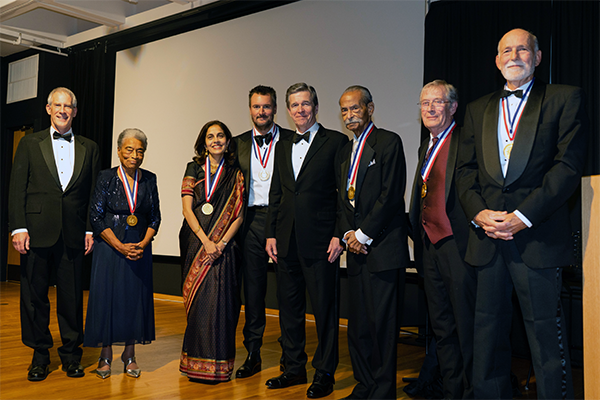
Congratulations to Priya Kishnani, MD, MBBS, Chen Family Distinguished Professor of Pediatrics and chief of the Division of Medical Genetics at the Duke University School of Medicine. She received one of North Carolina’s highest civilian honors, the North Carolina Award, on November 15 for her contributions to science. As the lead principal investigator, Kishnani designed and conducted clinical trials that led to the first-ever FDA-approved treatment for Pompe disease. Read more.
Call for nominations for the Lasker Awards.
The Lasker Foundation seeks nominations of outstanding candidates; nominations of women and minorities are encouraged. Lasker Awards will be offered in three categories in 2023: Basic Research, Clinical Research, and Special Achievement. The Public Service Award, presented every other year, will next be given in 2024. Read more.
Call for nominations: The 2023 Vilcek-Gold Award for Humanism in Healthcare.
The Vilcek Foundation and The Arnold P. Gold Foundation have announced an open call for nominations for the 2023 Vilcek-Gold Award for Humanism in Healthcare. Nominations will be accepted through January 31, 2023, at 5 p.m. Eastern Standard Time. Read more.
Does anything live at the bottom of the ocean?
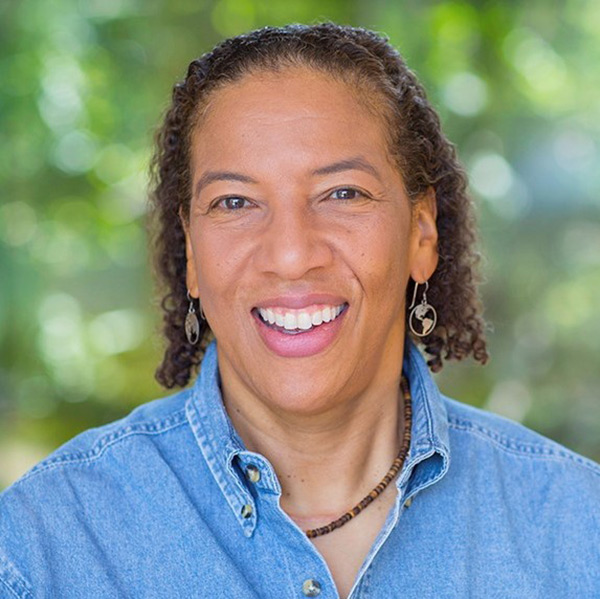
Oceanographer Dawn Wright talks with film producer Jeffrey Silver about what life forms she saw on her recent dive to the bottom of the ocean in the latest #AskAScientist episode. Read more.(Photo by American Academy of Arts & Sciences)
Celebrating Marie Tharp.

Marie Tharp put ocean floors on the map. This interactive #GoogleDoodle celebrates Marie Tharp—American geologist and cartographer who found evidence of continental drift along the seafloor. Learn more about her life's work here. Photo: Marie Tharp. Courtesy of Lamont-Doherty Earth Observatory and the estate of Marie Tharp
The feminist test we keep failing: Lost Women of Science Podcast, Season 3 Bonus Episode.
There’s a test that we at Lost Women of Science seem to fail again and again: the Finkbeiner test. Named for science writer, Ann Finkbeiner, the Finkbeiner test is a checklist for writing profiles of female scientists without being sexist. Read more.
We’re living in a new era for women in space, on screen and off.
They began their careers as human computers, a mathematical equivalent of the secretarial pool used in many research centers at the time. Read an excerpt from the new book, “Space Craze,” by Smithsonian space historian Margaret Weitekamp. Read more.
Science couldn't save her, so she became a scientist.
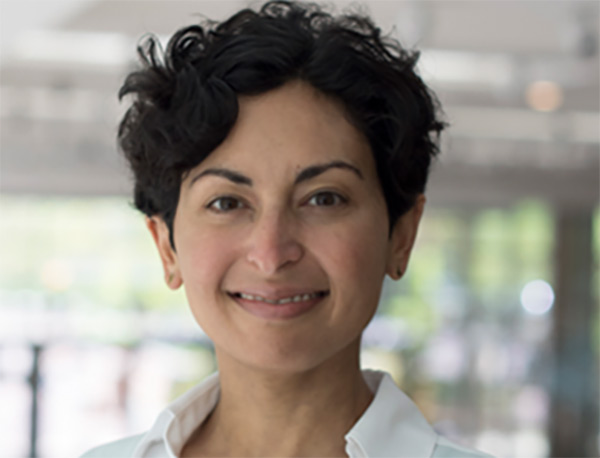
Eric Minikel and Sonia Vallabh are Ph.D. students in Stuart Schreiber's laboratory at the Broad Institute. In 2010, Sonia’s mother abruptly developed and died of prion disease. The following year, Sonia learned she had the same mutation that caused her mother’s disease. Thus, Sonia and her husband Eric began studying biology, with the long-term goal of designing small molecule therapeutics for prion diseases. Sonia Vallabh and Eric Minikel join Short Wave to tell their story in this second of three episodes on prion disease. Read more. (Photo: Broad Institute)
Raising the profile of women in STEM across the globe.
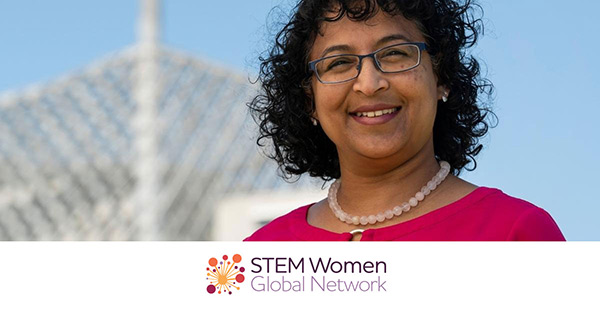
Women working in STEM fields will be able to raise their profile and discover opportunities to progress their careers following the launch of STEM Women Global in November. STEM Women Global is an initiative of the Australian Academy of Science with the support of the InterAcademy Partnership (IAP), the Association of Academies and Societies of Sciences in Asia (AASSA), the Network of African Science Academies (NASAC) and the Inter-American Network of Academies of Sciences (IANAS). Read more. Photo: Pamela Naidoo-Ameglio, Group Executive of the Nuclear Precinct at the Australian Nuclear Science and Technology Organisation (ANSTO).
Marianna Limas, Social Media Manager
Nilda Rivera, Partnership and Events Manager
|
|
|